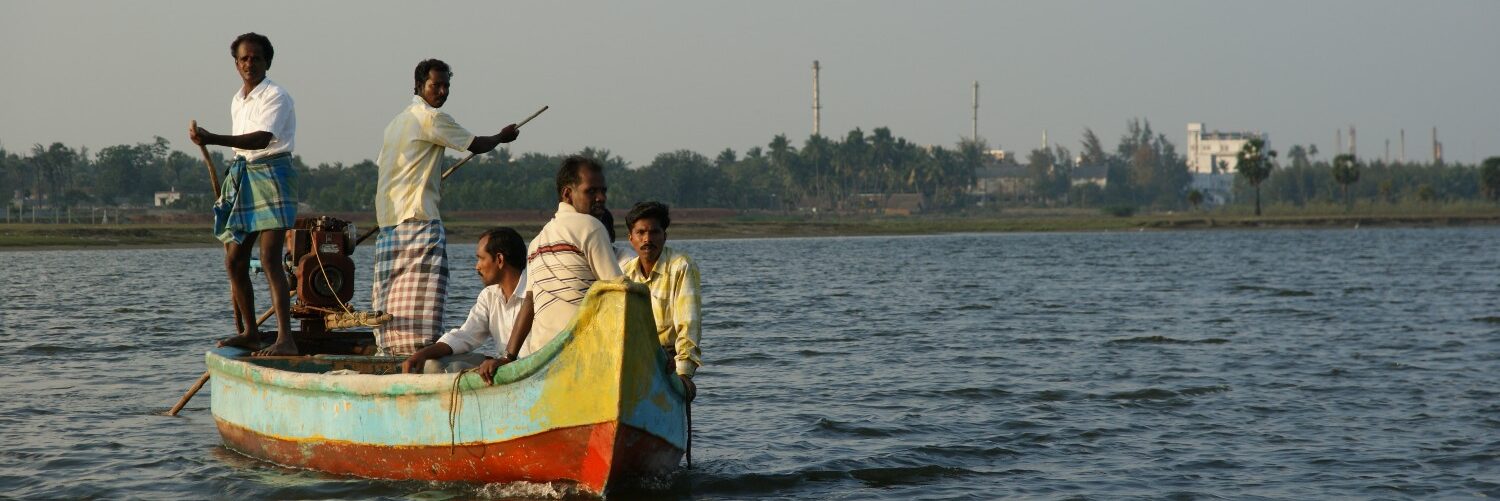Summary:
Pandian Chemicals proposes to manufacture Ammonium Perchlorate, a highly explosive chemical used as an ingredient in solid rocket fuel. Besides exposing local communities and workers to the hazards of an explosion, the companys product also poses a serious threat of contamination of groundwater with perchlorates. Exposure to perchlorate is particularly dangerous for pregnant women, fetuses and children. That is because perchlorate affects the thyroid gland. This in turn affects the mental and physical development of children.
The Product, the Raw Material & the Process
The Company will use about 1100kg/day of Sodium Chlorate and 600 kg/day of Ammonium Chloride to manufacture 1250 kg/day of Ammonium Perchlorate. Common salt (Sodium Chloride), Hydrogen gas and Ammonium Chloride are generated as by-products.
Total production capacity is 37.5 tonnes per month or 1.25 tonnes per day.
The process involves oxidising a water-based solution of Sodium Chlorate by passing electricity through it, in the presence of Ammonium Chloride.
Total water consumption is placed at 75,000 litres/day, enough water to meet the drinking and bathing needs of 1500 people.
Ammonium Perchlorate: The Dangers
[Excerpts from the Massachussetts Department of Environmental Protection factsheet]
Ammonium perchlorate (NH4ClO4) is used in solid propellants for rockets, missiles and fireworks. Perchlorate is thus found in surface and ground waters around military operations, defence contracting or manufacturing facilities.
What are the immediate dangers?
Ammonium Perchlorate readily explodes when in contact with organic matter or metal dust, heat or friction. The impact of an explosion can be devastating, especially given its proximity to other chemical units and residential areas. The factory poses a threat both to workers and communities living nearby.
How can the chemical enter your body?
Perchlorate is highly mobile in water and can persist for many decades under typical ground and surface water conditions. Human exposure to Perchlorate can occur through the ingestion of perchlorate-contaminated water. Infants can be exposed to Perchlorate through breast milk, as breast tissue appears to concentrate Perchlorate. Skin absorption of Perchlorate as a result of skin contact during showering and bathing is expected to be low, because perchlorate is completely ionized in water. It also doesn’t volatilize, so it will not be in the air and will not be inhaled during showering.
How can Perchlorate Affect You?
Perchlorate disrupts normal functioning of the thyroid gland. It interferes with iodide transport into the thyroid gland, decreasing the availability of iodide needed for the synthesis of thyroid hormones. Thyroid hormones are essential for metabolism and normal growth and development.
The impacts of disrupting thyroid hormone synthesis are greatest on pregnant women and their developing fetuses, infants, children, and individuals who have low levels of thyroid hormones. The chemical causes effects similar to those experienced by people with low iodine levels
Adverse health effects associated with perchlorate exposure are expected to be similar to those caused by iodine deficiency in humans. In areas of inadequate iodine intake, effects manifested in such iodine-deficient individuals can include:
- Impaired physical development or growth of children
- Impaired hearing, vision, movement and behaviour
- Impaired brain development, reduced intelligence and lower IQ in children born even to mildly or moderately iodine deficient mothers
- Enlargement of thyroid glands and possible thyroid tumours
What Should You Do?
Residents living near SIPCOT are already suffering from serious health problems as a result of existing pollution. The factory plans to dispose its effluents using solar evaporation. This heightens the possibility of groundwater contamination. Write to the Chief Minister demanding that the factory should not be allowed to set up in Semmankuppam:
Chief Minister of Tamilnadu
Fort St. George
Chennai, India
